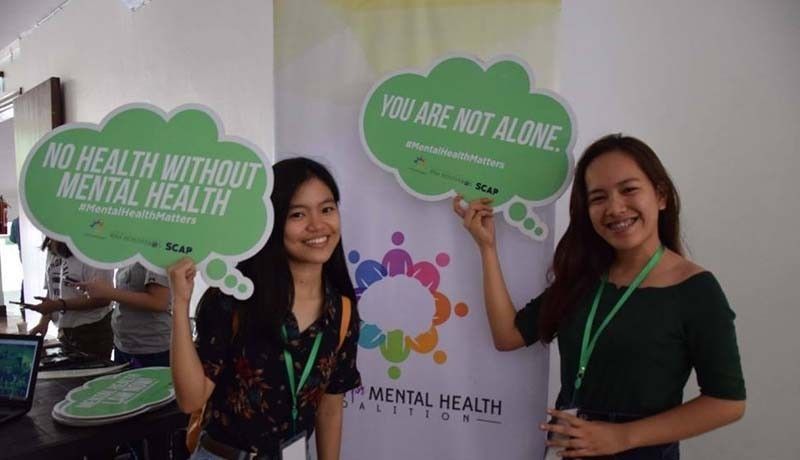‘Culture change, social media helped pave Mental Health Law’

MANILA, Philippines — Changing culture and social media paved the way for the passage of the much-awaited Mental Health Law, a legislation that doctors believe will change Philippine society.
Dr. Gia Sison, national adviser of the Youth for Mental Health Coalition, said culture “played a big part” in the passage of the law after almost 30 years pending in Congress.
She noted that past culture “was so laid back” that people did not want to speak although they felt strongly about mental health issues.
“But lately, the youth have been vocal that they really pushed for this whole-heartedly and the need was really there. Statistics were going up. Reported cases are more accurate now because of raised awareness. So they really pushed for this law,” Sison said in an interview with “The Chiefs” on Cignal TV’s One News channel.
Sison explained that Republic Act 11036, or the Mental Heath Law, can be summarized in three major points: right to access, right to education and the right to be cared for.
The law addresses stigma and discrimination, which have been hindering mental health programs.
“We should realize ‘there’s no health without mental health.’ Right now they already acknowledge the fact that based on the World Health Organization’s definition, health means physical, mental and spiritual,” she added.
The law also states the responsibilities of everyone in society and primarily provides for the establishment of a National Mental Health Council, which will oversee the implementation of the law.
Under the measure, the council shall develop and periodically update a national multi-sectoral strategic plan that will operationalize the objectives of the law and determine the budgetary requirements and corollary investment plan.
According to Jarvin Tan, the coalition’s director for education, social media contributed in getting the law passed since the first attempt to have such a legislation in 1989.
“It raised awareness. Back then, there weren’t as many spaces to talk about taboo or stigmatized things. But suddenly there’s this big arena, you have social media,” he said.
Because of social media, the youth have become vocal and realized the importance of mental health.
“They take the initiative and become more vocal to create spaces for discussion regarding all these previously stigmatized topics. Suddenly, we can amplify the voice regarding mental health and I think people see that,” he added.
According to Antipolo City First District Rep. Chiqui Roa-Puno, one of the 10 principal authors of the law, legislators made sure the measure is highly inclusive so all stakeholders concerned were invited to air differing and contentious opinions.
- Latest
- Trending






























